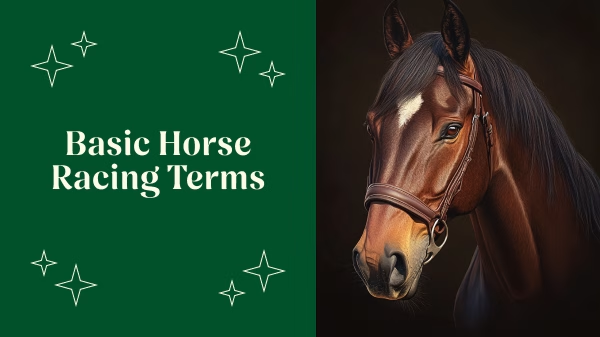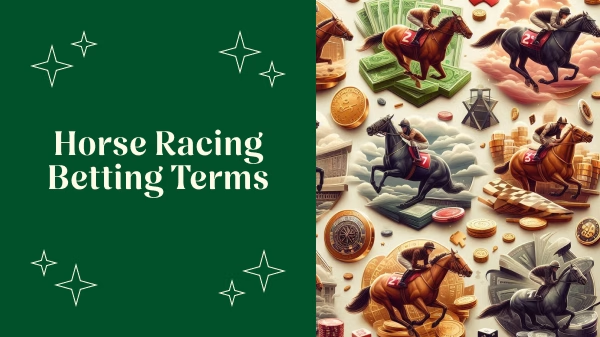The Language of Horse Racing: Why Terminology Matters
Horse racing is a sport with tradition and history. However if you simply watching horses running around a track it is more from that, horse racing sport its very most of time. Horse racing terminology can enhance the race viewing experience from setting up to win a race. Whilst terms like graded race and winning bets may sound a bit confusing to begin with, these explanations should give you the perfect grounding in what they all mean – whether watching races live or engaging in betting.
In order to understand a book about horse racing, it is necessary you learn some of the terminology, especially if you have any prospect of involvement on that side. The language of horse racing includes terms relating to the horses themselves, such as whether they are geldings or fillies and colts,,to more technical phrases like stakes race and claiming race. Moreover, it makes a lot of sense to be familiar with betting terms like exotic bet, betting lines and combo bets because this knowledge might influence your future decision-making process when considering making winning wagers.
Horse racing has a rich history and an intriguing culture rooted in tradition handed done through the ages. Having a grip on the fundamentals and intricacies of horse racing terminology hooks you up to this community. Understanding things like how a racing secretary goes about their job or the process of determining morning-line odds help you to appreciate different aspects of this sport. They key not only that which makes it more fun to watch the races but also educates you on what strategies are used for each winning bet. Getting to know every aspects of horse racing jargon will enable you to fully enjoy the sport and may be a step toward being an excellent bettor.
Basic Horse Racing Terms

Below, you’ll learn a few of the basic horse racing terms to assist in your comprehension of the fundamentals that accompany this thrill-packed game. The world of horse racing is a fascinating one, from the horses themselves to the makeup of mere track. Whether you are watching a race or placing bet, familiarizing yourself with these terms will help give you a deeper understanding of the sport.
So in the first part we’ll begin with horse types and breeds. The Thoroughbred breed of horse, bred for its speed and endurance in conformance with the traditional standards. Though not essential, several other breeds contribute to the various disciplines of racing. Arabians have always been known for stamina and frequently used in long-distance races, while Quarter Horses are very fast over short distances. How To Read A Horse During The Race Based On The BreedKnowing the breed of a horse would give an idea how strong will it be and we can gauge what their performance might possibly me during in play track.
Aside from the obvious breeds and purpose, horse racing can be categorized according to type of race (jumps or flat) distance… Flat racing is the most widespread and involves races run on flat turf or synthetic surface course. The races are everything from short sprints to longer endurance distance, so it can be challenging for the jockey and affects strategy on what type of horse you may wish to ride. Stakes are top flight contests piting the cream of the crop against each other while claims involves two or more horses that may be bought. All 3 types of races present very different challenges and betting opportunities, so it is key you understand the differences.
Horse Types and Breeds
Speaking of terminology, if while watching a female horse race you truly do not know what all these words mean that flit across the screen, how can one appreciate even half of it without understanding at least something about why knowing who was faster or slower and determining which is better would be discussed ad nauseum by those who love to follow thoroughbred horses as they go from birth through their competitive careers. Every breed has a distinct impact in terms of the ability to compare and effectuate race strategy. So today we will delve into the most prevalent breeds associated with horse racing and reveal what distinguishes them from one another.
Thoroughbred horse racing is a worldwide sport and industry involving the United Kingdom, Ireland, France, Australia Canada and the United States as major industries.. The format of these races are based on flat racing although national hunt due to its proximity can be run both ways. Thoroughbreds are best known for their use in racing, as these male horse were conceived from the start for speed and agility endurnace. With their long legs, they are perfect for both sprints and the marathon. The breed is closely recorded in studbooks and pedigrees are an impor-tant factor for value, performance capability as well. Thoroughbreds compete in many of the world’s significant horse races, and those contests where they do not they have a similar equivalent contest for which specific courses or offshoots exist.
Race Types and Distances
One of the important things to grasp when watching and betting horse racing is knowing the different types of consecutive races there are, what distances they are run over. Each type of race shares different factors that cause various hardships and advantages, such as the where it takes place other than just how long. Today, we will look at different lengths of races and how distance may impact the winner.
Flat racing, the most common form of male horse racing which is run over surfaces with-out obstacles. The distances of these races are very diverse, from short sprints to long endurance racing. Sprints : These consecutive races are anywhere from 5F to 7 lengths and is meant to really show off a horse wins speed,their ability to break well,very quick acceleration. Routes are longer races (up to 1.5 miles or more) that demand quickness, stamina and tactics forest home camp onAnimation series films;padding-left:calc(0 In flat racing, distance has an enormous effect on the tactics that both jockeys and trainers use to win a bet.
Stakes races are high profile racing secretary events that showcase the best equine talent. There are usually big prizes at stake in these races, attracting top quality athletes from all over the globe to take on one another. Stakes races consist of a higher caliber than allowance and claiming races, which can include any distance from short to longer (requiring horses with speed as well), or ability. The particulars differ but the trials typically serve as a hothouse for juvenile talent, offering prospective stars an opportunity to show their abilities and worth.
Track Conditions and Surfaces
Knowing the conditions of a racetrack and its surface is arguably the most critical thing in horse racing when it comes to predicting race outcomes and placing bets. The different surfaces a horse races on will drastically change how well or poorly it runs, so for fans of the sport and bettors alike understanding what they are seeing is important. Learn the track surfaces you will stumble across with various conditions in horse racing practice.
Another common surface in horse racing is dirt tracks, which are used primarily through the North America. Fast and firm conditions are typical at dirt tracks, which can play into the hands of horses with a big stride length and plenty or early speed. A dirt track may be very fast, muddy or sloppy depending on the weather. If you want to make successful bets, it is important that you know how these conditions impact the performance of a horse. For example, a horse that runs great on fast tracks may not do so goodly on slow moist ones, making the betting odds and forecast payout an unlooked for event.
Equipment and Gear
Because of the speed and power involved, equipment has long been instrumental in horse racing to protect both horses and jockeys. The weight of the saddle is important to ensure that it minimizes movement and allows for a more balanced jockey in the race. The bridle and bit are how the horse is steered, to best navigate the track in a convenient manner. Horses are typically given blinkers to hinder their eyes and limit visual information to keep the horses from slowing down in a race. Also, a reminder for the horse to run more match is whips that jockey responsible use understandingly. Denying wearing any of this equipment could in turn improve or worsen a horse’s racing history performance which also helps or hinders those betting on the race using odds.
Racing Every Day (Jockeys, Trainers & Owners)
If nothing on this planet would happen by random selection, so how a racehorse win or loose when there are people who could affect the result including jockeys, trainers and owners. Jockeys are the tactical riders which must guide their horses through to victory using both body balance and race tactics. Using their knowledge of horse physiology and conditioning, they are able to design programs that will benefit the health of all thoroughbreds based on factors such as track condition or competition requirements. They are backed financially by owners who also make all the decisions about their horse’s career including which races to enter and selecting trainers. In order to consider the odds of selection in winning wagers, it is important that one recognizes who these keystone individuals are and what they do so very well.
Horse Racing Betting Terms

Understanding the basic horse race betting lingo is an important first step for anyone looking to wager on races. Betting Terms: Identifying types of bets – from win, place and show to the more exotic wagers. The odds are what the payoutshould be based on bets made, and handicapping is simply figuring out a horse’s performance history. These bring about an easier way for these bettors to get as much success with their bets, thanks to betting strategies and systems plus common Betting Abbreviations. Knowing these terms can improve your experience of horse racing and the odds you have to place successful winning bets.
Different Bet Types (Win, Place and Show plus Exotics)
Bettors should know the different kind of bets in horse racing A win bet finds gamblers ponying up cash on a horse that ends first, and provides robust payouts when they come in correctly. Among the simplest bets, a place bet is betting on your horse to come in either first or second – maintaining a safe win with smaller payout. A Show bet will pay if the horse finishes first, second or third and are for recreational money with lower win returns. Exotic bets-exacta box, trifecta and such-are when the bettor predicts more than one horse’s final ending place(s) in review of the betting odds on performance.
Odds and Payouts
In horse racing, odds and payouts are important to understand before making a betting decision. Odds indicate the chances of a horse to win and define the payout. Where fixed odds are set at the time of placing a bet, starting price bets involve waiting until closer to race start before betting on what prices horses will reach. Short odds are for the favorite, so it pays less money out but has a higher probability of winning. The expression of odds automatically assumes a big favorite, so the return on them is rather small. Underdog: He team will have higher odds Against, meaning larger payouts. This is important because the better someone understands these concepts, the more effectively they will be able to analyze each wager for potential risk and reward in an effort to place a winning bet.
Handicapping and Form
Handicapping is an essential horse racing skill for bettors as it determines a specific horses performance, past history and current form to help them predict future success. Form is used to measure a horse’s performance in its most recent races, including the finishing position of these runs along with other more detailed information such as quality and condition. This greatly aids bookmakers to figure out how a horse is carrying form or resting on its laurels, as such information will help punters ascertain who stands the best chance in any given race. This data is utilized by expert handicappers to spot value bets and educated decisions placing wagers as they try their hardest to beat the odds of betting at competitive horseracing.
Strategic and Systematic Betting
Creating successful betting strategies and systems is a must for consistent profits from horse racing. Different Ways To Bet Winning bettors do different things such as the daily double (betting on the winners of two races in a row) or combination bets that allow you to cover multiple outcomes with one wager. Ante post bets are again wagered well in advance of the race, which gives you a higher potential return but also carries an increased danger. By comprehending various betting terms and using tactical systems, bettors can make the most of their winning opportunities alongside reducing risk to ensure a steady flow of winning punters from horse racing wagers.
Common Betting Abbreviations
Understanding easy betting abbreviations is of the unambiguousities theyorse gambling slide sorts and rushing computer software; This kind of term, including SP (Starting Price) shows the odds at race time as well as an EW bet covers a horse to win to help you win and place. NR (Non-Runner) – A horse that was pulled out of racing, which can see wagers and possible winnings affected. F (Favorite): The horse the bettors considers mostly probable to win. With an understanding of these abbreviations, sports get a lot more convenient as there is no time loss in analyzing and making choices purposefully which ultimately aids you to come across winning betting odds!
Advanced Terminologies in Horse Racing

Advanced horse racing terminologies help give deeper insights into the game and also improve betting strategies. Veterinary and medical terms in this field Heritage and Tradition : Words give us a glimpse of the rich past/history, culture/moral values etc. If bettors can master these advanced terms, they will be able to approach racing with a comprehensive analysis and ultimately make more informed decisions on the complexities of horse racing, which should then result in higher probabilities at earning winning bets and getting better returns.
Breeding and Pedigree Terms
In order to evaluate a horse’s prospects on the race track, it is crucial that you understand some of the most important breeding and pedigree terms. Pedigree is a horse his father’s line, demonstrating how it has inherited behavioral characteristics. Stud – A male horse used for breeding Broodmare – A female horse in which the owner wants to reproduce from Gelding-or castrated male horse-typically has more control over its behavior, thus adjusting racing outcome. Having this knowledge will help punters evaluate the facts about a horse’s past and potential before deciding whether or not to place their bets. Studying breeding can tell you a horse’s capabilities and whether it is likely to run better or worse on this type of surface. It affects the odds for winning bets as well!
Veterinary and Medical Terms
Knowing when an equine is not at 100% can be the difference in determining whether to run that horse and his running ability on any given day so learning veterinary terminology as it applies here, along with medical jargon in general is a must! Lameness occurs as a result of an injury or condition in the horse that impairs its ability to run causing usually withdrawal from races. Legislation – also called unable to run – refers specifically to horses with a history of exercise-induced pulmonary hemorrhage that may or may require treatment, and is specific just for bleeder medications. A vet check is an examination of the horse, which, prior to racing basically lets trainers know that his/her horse is fine and able greet race. Knowing these terms also allows bettors to assess the condition of a horse before placing their bets while accounting for its health and how this might affect, in turn, on the track.
Historical and Cultural Terms
Traditionally rich horse racing historical and cultural terms The Derby (like the Kentucky Derby): The highest class of three-year-old racing that attracts talented horses who race down a dirt track for perhaps the most lucrative and historically significant accomplishment in their arenas. Dead heat – when two or more horses finish in a tie and the winnings must be shared. Knowing the importance of these words allows horse racing fans to understand its cultural influence and history. Knowing a sport’s legacy enhances the experience for bettors and fans alike, making recent events relevant by connecting them to history in an informative way.
Interactive Learning Tools

Tools that facilitate interactive learning are worth their weight in gold looking to perfect the language of horse racing and get good at betting. Participating in a quiz helps to test how much knowledge gained and kind of brush-up points as well. They are a simpler way to fracture the sport, and might help you remember terms, contributing something to understanding of it. Just a pronunciation guide to help you pronounce difficult terms with certainty when chatting it up other racing enthusiasts. Using these tools not only increases your understanding of horse racing, but also gives you a good idea what to bet and how often those types cost winning bets.
Quiz: Try Your Horse Racing Abilities
A quiz is also a good means to test your knowledge of horse racing vocabulary, some fundamental skills for betting. If you force yourself to come up with answers on breeding terms, betting strategies and race types, you will find out where your strengths are and which areas need improvement. The more you learn interactively, the better knowledge of yourself is locked in on your way to becoming a smarter and crazier player. By taking regular quizzes like this, you will always be up to date on the latest betting terminology and racing methods which allows you to remain prepared so t anything that can help make better betting decisions with bigger chances of backing a winner.
Flashcards – Key Terms and Definitions
Ready to improve your horse racing vocabulary and fully understand the sport, use flashcards! They are great to use as flashcards that make the essential points including breeding terms, wagering strategies and type of races which need memorizing n recalling. This approach is particularly helpful for learning complex vocabulary as you will find with race programs and betting guides. Review betting terms on flashcards to develop a stronger understanding of the key terminology in sports betting, and be better able to make your own bet. This helps you to have basic recognition about races, which makes it easier for you to win your bets.
User pronunciation guide difficult terms
We have all heard the terms and proper pronunciation is key to not sound like a rookie. Let’s start with some basics. For Thoroughbred, say “THUR-oh-bred” stressing the first syllable. How Exacta sound like : ig-XAC-tuh Trifecta Prn: try-FEK-tuh More on PED-i-gree Pedigree is accented on the first syllable. Maneuver Manuvers – pronounced it another tough one, right?cascadeup Elegant…err. No (It sounds like elegant) Pronouncing “stayks” clearly for stakes races. By improving on these pronounciations the way you speak about horse racing sounds more fluent and professional.
Additional Resources

Another way to gain further insights into the world of horse racing is by using some these online resources. Some websites like Racing Post, or Horse Racing Nation for example will give you some detailed analyses as well as tips about the best way to bet on certain horse racing events throughout the world. American Graded Stakes Committee site, including list of stakes & graded races You can also visit BloodHorse for breeding news and pedigree information. These are great resources for those just starting out and knowledgeable fans alike, delivering the latest news, expert commentary as well as historical information that can help you become better horse racing bettors.
Beginner Bettors: Where to Begin With Horse Racing Betting
It can be intimidating to get started on horse racing betting, but a few of the tips we are going to talk about today and you will be ready to go. Get To Know Common Betting Terms: Win, Place and Show First If you are new to betting, start out with small wagers and try see how the odds work as well as payouts. Look up information on a horses racing history, breeding and track conditions before placing any bet. The idea is to get information from sources like racing forms or via online forums. You must remember to keep within a budget and gambler responsibly Knowing these basics will help you keep on the right track and put in less effort to have engaging betting experiences.
Conclusion

One of the keys to enjoying horse racing fully is the understanding of horse-racing terminology, which can be intimidating for first-timers and anyone else seeking readability. Everything from the most basic (type of bets, track conditions), to advanced concepts such as breeding and pedigree – mastering these terms enriches your enjoyment. Play responsibly, stay within your budget. If you commit to it and use the right tools, anybody can do their homework when looking at horse racing. Continue on your quest for knowledge, be intrigued, and experience the thrill of horse racing!
